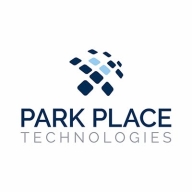

Entuity and Nmap serve distinct roles in network management, with Entuity offering comprehensive monitoring solutions and Nmap focusing on network discovery and security auditing. Entuity appears to have an edge in managing large-scale networks due to its extensive support and capabilities, whereas Nmap stands out for its scanning power and security features.
Features: Entuity provides detailed performance monitoring, automatic network discovery, and customizable dashboards. Nmap specializes in in-depth network scanning, host discovery, OS detection, and vulnerability assessment. Key differences lie in Entuity's broad network management versus Nmap's targeted security functionalities.
Room for Improvement: Entuity could enhance its user interface, streamline its integration with other tools, and reduce implementation complexity. Nmap could improve by offering more user-friendly interfaces, expanding its documentation for better usability, and providing direct support channels to help users navigate its functionalities.
Ease of Deployment and Customer Service: Entuity offers a structured deployment process with substantial customer support to facilitate smooth implementation for complex networks. Nmap, as an open-source tool, relies on user-led support and requires greater technical expertise for deployment. Entuity emphasizes formal customer service, contrasting with Nmap's self-service approach.
Pricing and ROI: Entuity's initial setup cost is higher, reflecting comprehensive service offerings and long-term ROI expectations for large networks. Nmap, being open-source, has minimal setup costs, providing significant value for network scanning functions without direct fees.
| Product | Market Share (%) |
|---|---|
| Nmap | 0.7% |
| Entuity | 0.7% |
| Other | 98.6% |

| Company Size | Count |
|---|---|
| Small Business | 4 |
| Midsize Enterprise | 2 |
| Large Enterprise | 3 |
| Company Size | Count |
|---|---|
| Small Business | 9 |
| Midsize Enterprise | 1 |
| Large Enterprise | 11 |
Nmap ("Network Mapper") is a free and open source (license) utility for network discovery and security auditing. Many systems and network administrators also find it useful for tasks such as network inventory, managing service upgrade schedules, and monitoring host or service uptime. Nmap uses raw IP packets in novel ways to determine what hosts are available on the network, what services (application name and version) those hosts are offering, what operating systems (and OS versions) they are running, what type of packet filters/firewalls are in use, and dozens of other characteristics. It was designed to rapidly scan large networks, but works fine against single hosts. Nmap runs on all major computer operating systems, and official binary packages are available for Linux, Windows, and Mac OS X. In addition to the classic command-line Nmap executable, the Nmap suite includes an advanced GUI and results viewer (Zenmap), a flexible data transfer, redirection, and debugging tool (Ncat), a utility for comparing scan results (Ndiff), and a packet generation and response analysis tool (Nping).
We monitor all Network Monitoring Software reviews to prevent fraudulent reviews and keep review quality high. We do not post reviews by company employees or direct competitors. We validate each review for authenticity via cross-reference with LinkedIn, and personal follow-up with the reviewer when necessary.